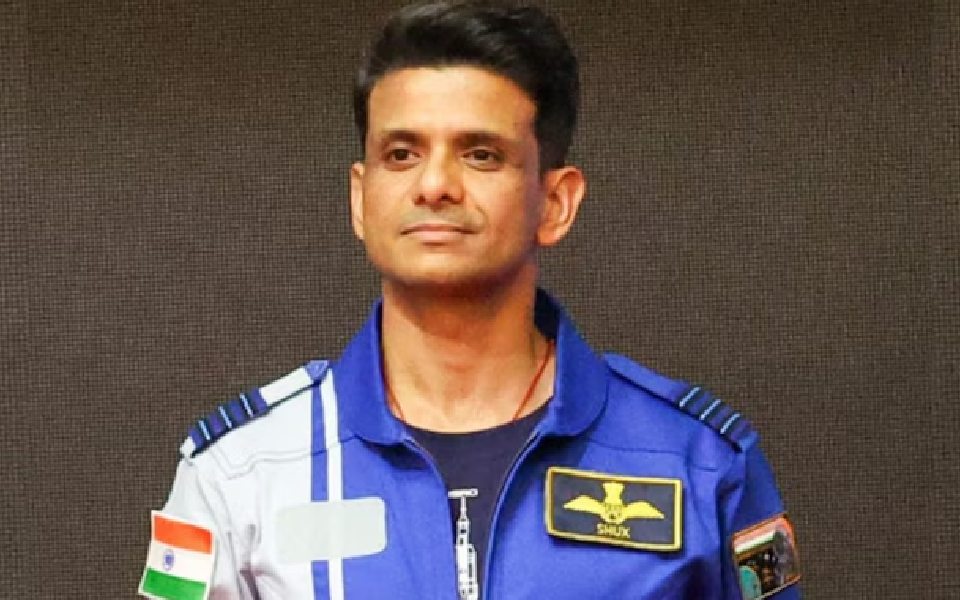New Delhi, Jun 3 (PTI): Axiom Space's mission to the International Space Station (ISS), carrying Indian astronaut Shubhanshu Shukla and three others, has been postponed to June 10 at 5:52 pm IST, onboard SpaceX's Falcon-9 rocket from the Kennedy Space Centre in Florida.
The announcement was made during a virtual press conference with the Axiom-4 mission crew members, who are currently in quarantine before their travel to the ISS.
The spaceflight was originally scheduled for May 29 and then rescheduled to June 8.
Shukla will be the second Indian to travel to space four decades after Rakesh Sharma's iconic spaceflight onboard Russia's Soyuz spacecraft in 1984.
Prime Minister Narendra Modi is expected to interact with the Axiom-4 crew during their 14-day stay at the ISS.
"We will have one with an Indian VVIP," Shukla said to a question on interaction with the prime minister from space.
Shukla said the Ax-4 crew will interact with school students, educators and members of the Indian space industry.
"For the people of India: This mission is a milestone and I request India to pray for the success of the mission. Even stars are attainable, Jai Hind,” Shukla said.
Shukla said he would be carrying Indian delicacies such as mango nectar, moong dal halwa and carrot halwa on the space flight.
Besides Shukla, the mission pilot for the Axiom-4 mission, the other crew include Slawosz Uznanski-Wisniewski from Poland and Tibor Kapu from Hungary, marking both European nations' first travel to the International Space Station in history and the second government-sponsored human spaceflight mission in over 40 years.
Once docked, the astronauts plan to spend up to 14 days aboard the orbiting laboratory, conducting science, outreach, and commercial activities.
The Ax-4 astronauts will perform around 60 scientific studies and activities representing 31 countries during their 14-day stay at the ISS.
Shukla is set to conduct exclusive food and nutrition-related experiments developed under a collaboration between the Indian Space Research Organisation (ISRO) and the Department of Biotechnology (DBT), with support from NASA.
The experiments aim to pioneer space nutrition and self-sustaining life support systems, vital for future long-duration space travel.
ISRO has lined up a set of seven experiments for Shukla, who will also participate in five joint studies planned by NASA for its human research programme.
It has drawn up plans to focus on India-centric food for carrying out experiments on the ISS, including sprouting methi (Fenugreek) and moong (green gram) in microgravity conditions.
Let the Truth be known. If you read VB and like VB, please be a VB Supporter and Help us deliver the Truth to one and all.
Kalaburagi: Four men have been arrested in Kalaburagi on charge of hacking a man with lethal weapons and pelting stones at him under the limits of Station Bazaar Police Station recently.
According to police sources, Anand Jalak Shinde (34), Ashitosh Jalak Shinde (30), Imran Mehboob Sheikh (28) and Sohaib Anwar Qureshi have been arrested. The men are accused of the brutal murder of Syed Mehboob, a resident of Station Bazaar Upper Line Hamalawadi in the city.
An FIR was filed by the Station Bazaar Police Station based on a complaint given by Syed Ismail, father of the deceased Syed Mehboob.
Following quick probe, the police team successfully arrested the suspects within 24 hours. The arrested men were produced in court and have been sent to judicial custody.
The City Police Commissionerate has appreciated in an official release the police team’s quick solving of the murder case and arrest of the four men accused of murdering Syed Mehboob.





